Science
Every Jingshanite is a Curious Young Scientist!
In alignment with the school vision, we envision every JingShanite to be a Young Scientist who is curious and passionate about learning Science; applies skills and processes in scientific inquiry and demonstrates conceptual understanding in the application of knowledge to real-life situations; and shows care and concern for living things and the environment.
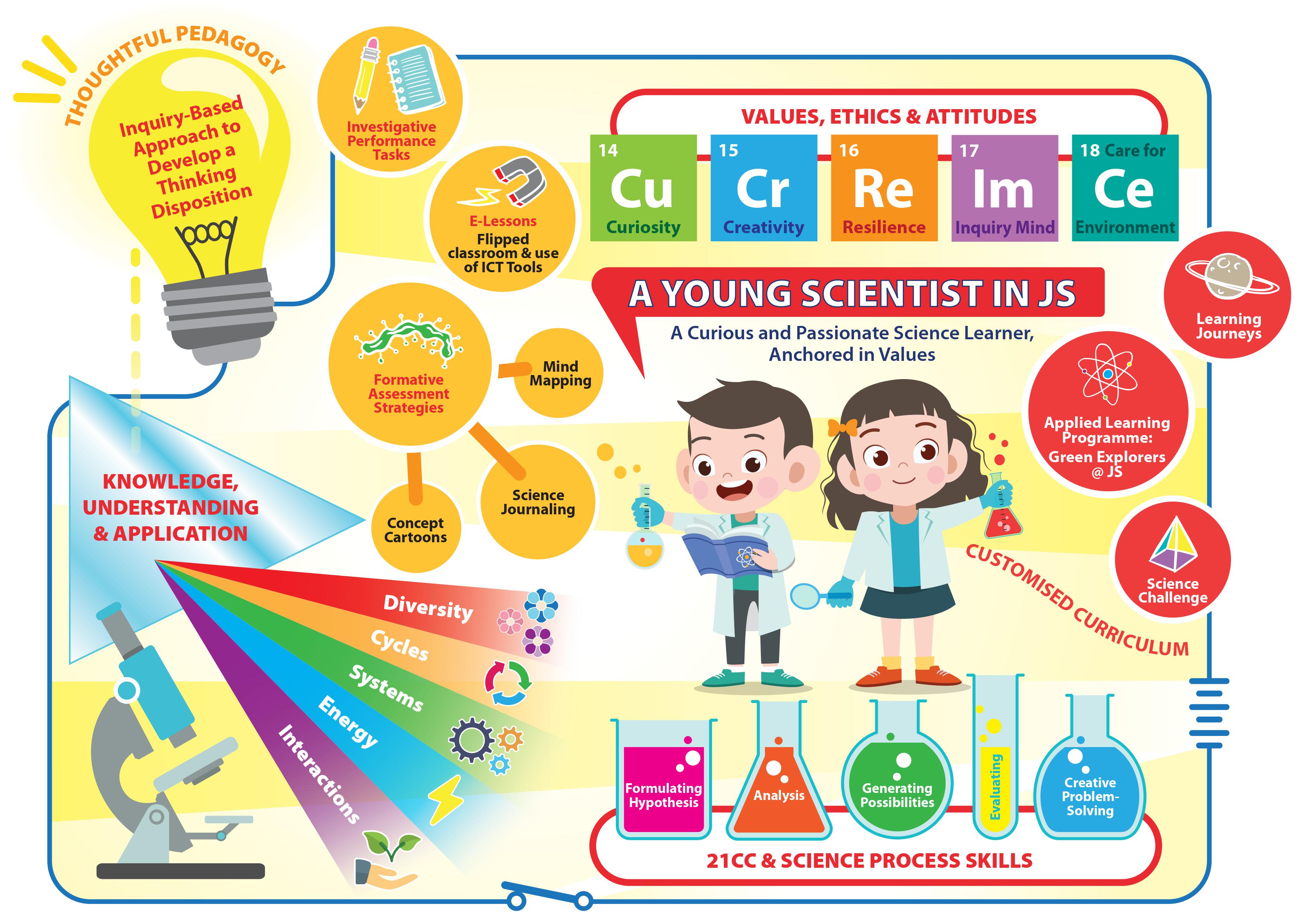
The JS Science curriculum is designed to provide opportunities for our students to acquire scientific knowledge, develop scientific practices, and to instill values, ethics and attitudes that are essential to the scientific endeavour in our students. Emphasis is placed on the application of concepts to real life situations, inculcating a positive learning attitude and the development of 21st Century Competencies (21CC) such as Critical, Adaptive and Inventive Thinking, and Communication, Collaboration and Information Skills. These learning experiences tap on the students’ curiosity for learning, improving their intrinsic motivation to become independent learners.

Pedagogical Approach
JSPS adopts an Inquiry-based approach as a thoughtful pedagogical approach in the teaching of Science that develops the (1) Core Ideas (2) Practices, and (3) Values, Ethics and Attitudes domains in students:
Core Ideas
Teachers use the 3C (Capture, Construct, Consolidation) pedagogical framework to design their science lessons, providing coherence and connections across the different instructional activities. This is supplemented with key learning experiences such as project work and learning journeys that enriches the learning experience and provide opportunities for students to apply the knowledge learnt.
Practices: Ways of Thinking and Doing
Students are provided opportunities for students to develop scientific practices through activities such as lab work, research work and problem-solving tasks. Teachers advocate and model the use of approaches such as Claim-Evidence-Reasoning and Visible Thinking routines to further develop student’s critical thinking skills.
Values, Ethics and Attitudes
In all scientific inquiry, the adoption of certain mental attitudes such as Curiosity, Creativity, Integrity, Objectivity, Open-mindedness, Resilience, Responsibility and Healthy Scepticism are advocated. Students are given the opportunity to develop and demonstrate these scientific mental attitudes in lab work and problem-solving tasks. The value of being responsible stewards of a sustainable environment is also inculcated through lessons and daily school experiences.
Signature Programmes for Science Learning
JingShanites go through a wide variety of classroom and out-of-classroom experiences that provides context and brings to life what they learn in Science.
Within the classroom
Investigative Performance Tasks
Students experience and demonstrate their science inquiry skills and competencies by working on investigative performance tasks with their peers. Through analysis of real-world problems, experimentation and data collection, results analysis and communication of findings; students are able to hone their reasoning, decision-making and creativity to hone their skills in creative problem-solving, decision making and investigation to solve real-world problems.
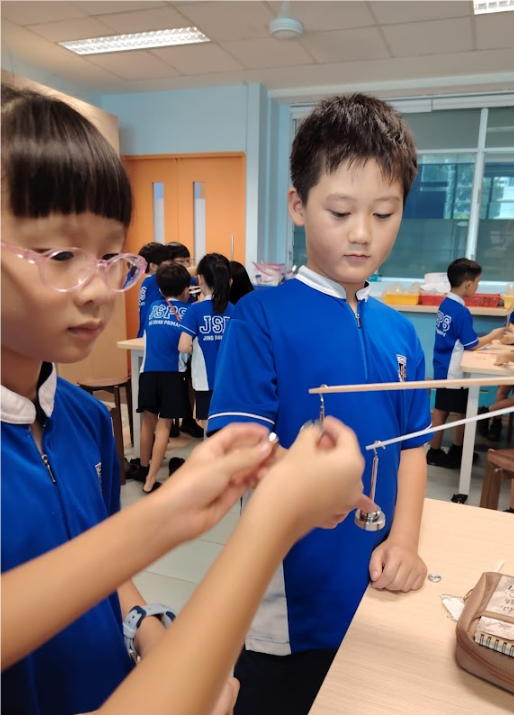
Technology-enhanced Learning
Students are given the opportunity to learn at their own pace through the use of ICT tools. The Student Learning Space (SLS) serves as the main portal for students, providing convenience in which students can access learning content at anytime and anywhere.
Our teachers design such lessons using a blended learning approach that are delivered through SLS and other ICT platforms. Such lessons encourages collaboration and peer learning among students through the affordances of ICT tools.
Students also develop skills like data interpretation and analysis with the use of dataloggers.

Science Ecogarden
The Science Ecogarden, nestled within the classroom block (Block C) of our school, is a vibrant oasis of greenery and life. Situated near the Ang Mo Kio Town Garden East, it enjoys frequent visits from a variety of insects and other animals, contributing to the flourishing ecosystem within. Beyond its role in enhancing the school's aesthetics, the Ecogarden serves as an invaluable outdoor classroom. It provides students with a unique opportunity to engage with and appreciate the rich diversity of plants and animals.
To facilitate learning, informative placards printed with QR codes are strategically placed throughout the garden. These QR codes enable students to embark on self-directed learning journeys, empowering them to delve deeper into the fascinating world of flora. By simply scanning the QR codes with their mobile devices, students can access a wealth of information about the plants.
The selection of plants has been meticulously curated to expose students to a wide spectrum of botanical wonders, each with its own distinctive characteristics. From aquatic plants to medicinal herbs, climbers to flowering marvels, the Ecogarden boasts a diverse ensemble of plant life. This carefully crafted ecosystem provides opportunities for students to observe the intricate interactions between flora and fauna.
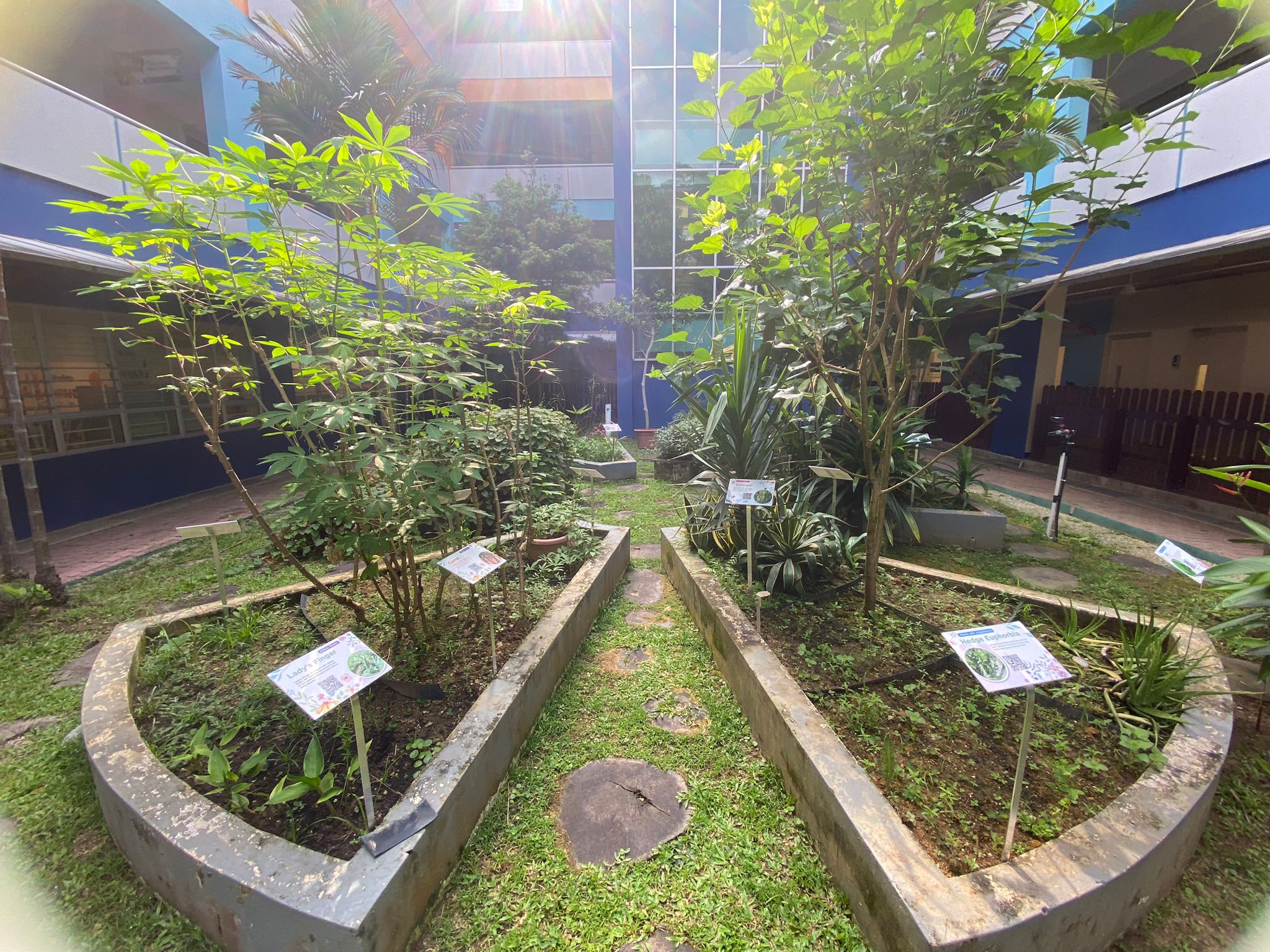
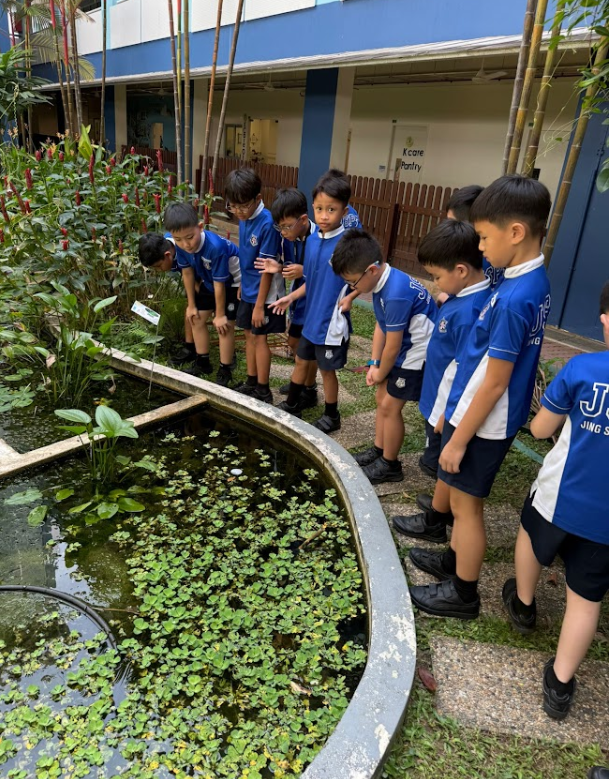
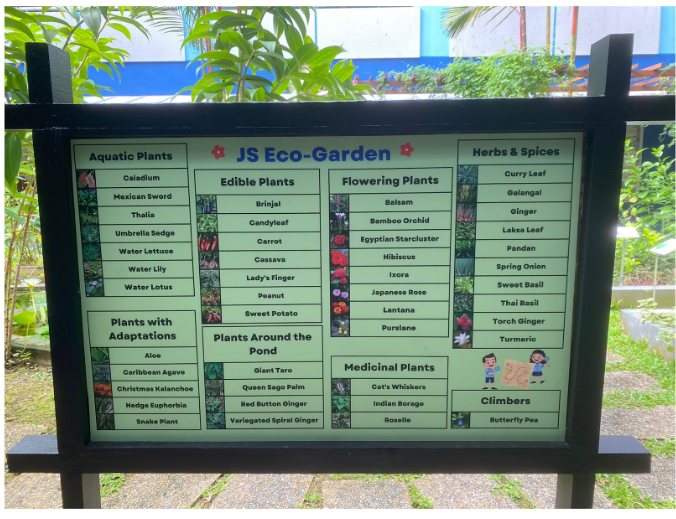
Science Week
The annual Science Week provides JingShanites with a platform to apply Science to real-world situations, through play-based learning. Throughout the week, students are treated to many engaging demonstrations of the Science concepts in their daily lives. Science Ambassadors, consisting of JingShanites with talents in Science, facilitate these demonstrations. These students trained as Science ambassadors to guide their peers through various Science experiments.
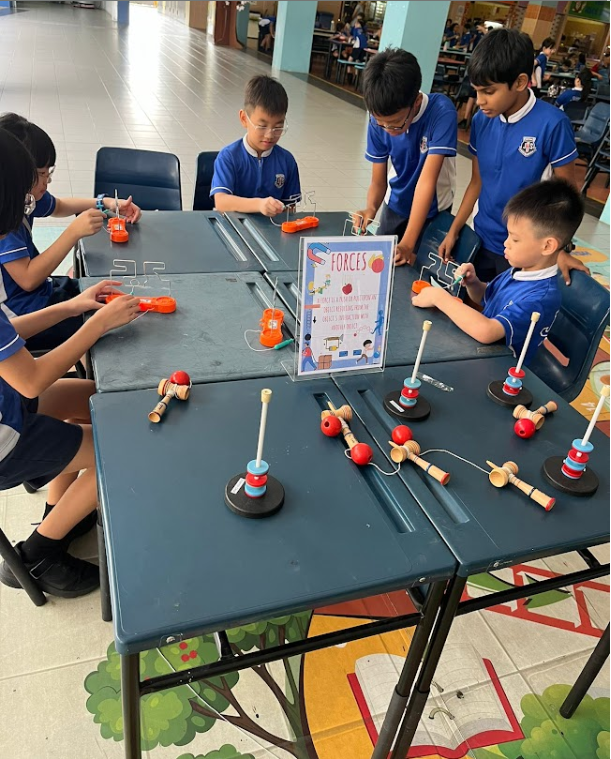
Learning Journeys
Out-of-classroom learning experiences are important in the learning of Science. The ecogarden and other green spaces in and around the school allow the students to be exposed to nature and plants. Learning journeys to Science Centre and the Singapore Zoological Gardens enable students to expand their Science learning capacities through hands-on experiments and authentic learning.
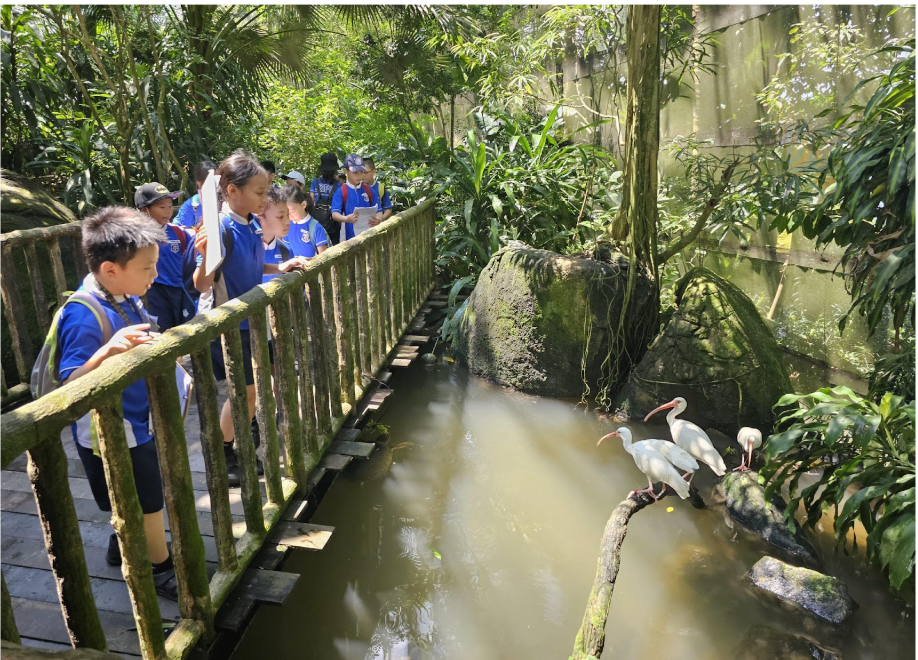
STEM Playground Challenges
The STEM Playground Challenges, organised by the Singapore Science Centre, provides JingShanites with the opportunity to apply what they have learnt beyond the classroom in a fun and enjoyable manner. JingShanites actively use their imagination and creativity, whilst applying certain scientific principles when completing a given challenge.

